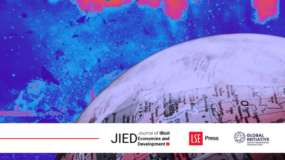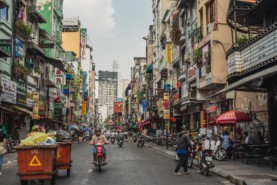Posted on 20 Aug 2023
What effects does a regulation of cannabis for recreational and medical uses have on developing countries?
This special issue aims to look at global South countries that have regulated or intend to regulate cannabis in their own jurisdiction and highlight potential effects on illicit market dynamics, transnational organised crime, value chain development, potentials of alternative development in legal cannabis markets, environmental impacts of licit cannabis markets, transitional regulations for legacy actors and communities traditionally most impacted by cannabis prohibition (so-called “social equity” approaches), as well as state governance and corporate capture of these newly developing markets.
The special issue also attempts to systematically review the cross-border effects of a regulated market in northern countries or federal states on traditional cannabis producing countries. Increasingly, a change from illicit to licit markets also implies changes in profit creation from the global south to the global north, and from cultivating cannabis outdoors to completely controlled and energy intensive indoor cultivation. Small-scale farmers that have been sustaining the illicit market for cannabis in Europe or North America might see their livelihoods put at risk due to corporate competition to supply recently created legal markets. At the same time, organized criminal networks lose a profitable source of income if the illicit market is successfully pushed back by legal market actors. People involved in illicit cultivation and trade might further be impoverished or move on to other, potentially more harmful, illicit activities if no economic alternative is being proposed. How can policy and development actors address these challenges meaningfully?
In order to offer a broad empirical, qualitative approach, we welcome contributions from various disciplines, including (but not exclusively) sociology, economics, anthropology, history and international relations, as well as policy analyses from activists, NGO leaders, or practitioners. We particularly encourage submissions by female scholars and contributions from authors from the global South. We may be able to provide language and translation support for original contributions not in English. Please contact the editorial coordinator to discuss possibilities.
JIED calls for three types of contributions in English (please see above on other possible languages):
RESEARCH ARTICLES
based on unpublished original research that makes a substantial contribution to knowledge and understanding to this special issue. Length: 8,000 words (abstract 250 words).
POLICY COMMENTARIES
which cover commentary on novel policy interventions or review pre-existing interventions. Length: 3,000 words (abstract 250 words).
METHODS ARTICLES
outline and test new techniques and discuss potential applications and significance of the technique (or articles that critique or modify extant methodologies and approaches. Length: 3,000 words (abstract 200 words).
If you are interested to respond to this call for papers, please submit a Letter of Intent (LOI) including the following information:
- Article type: __Research Article / __Policy Commentary __ / Methodology Article
- Tentative title of article
- Name, affiliation, and place of residence of authors(s)
- Abstract (max. 250 words)
Deadline for submission of Letters of Intent (LOI) including abstracts (250 words maximum) is on 1st October 2023, and for article manuscripts on 31st December 2023. Invited papers will be subject to the usual JIED peer review processes (based on a double-blind peer review). Planned date of publication is in fall 2024.
LOIs should be sent to the editorial coordinator: Ms Maria Khoruk, maria.khoruk@globalinitiative.net.


